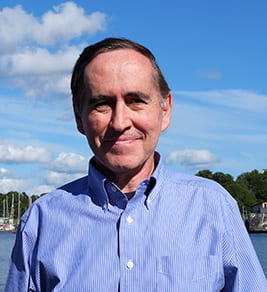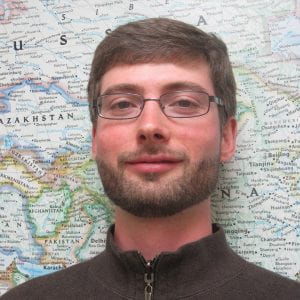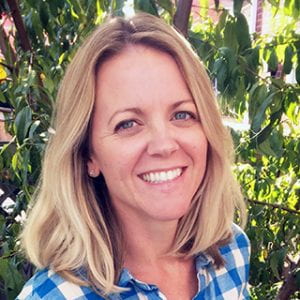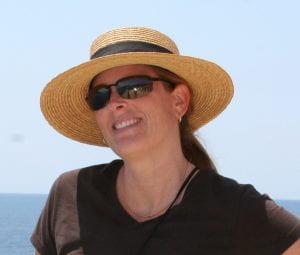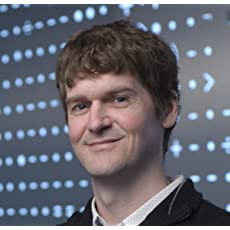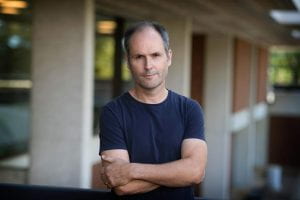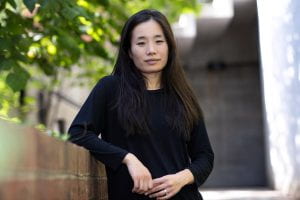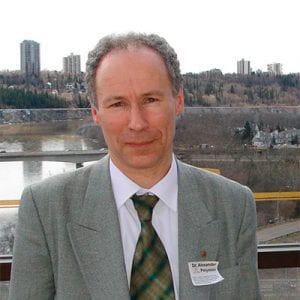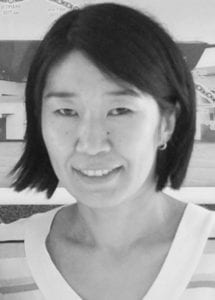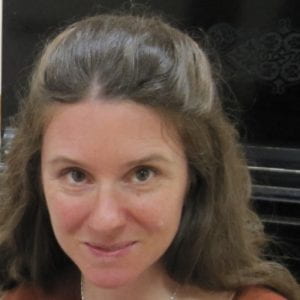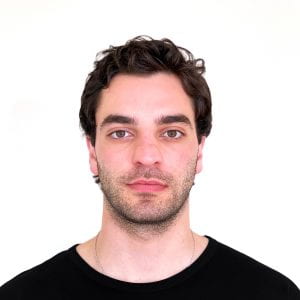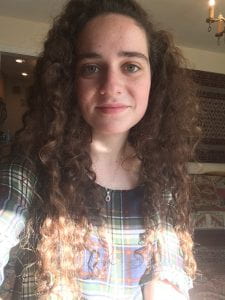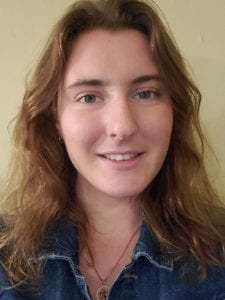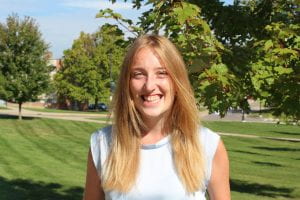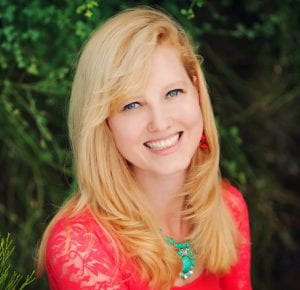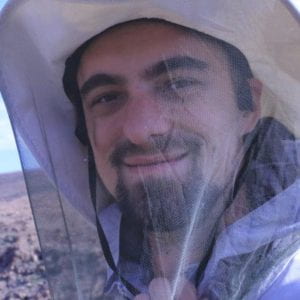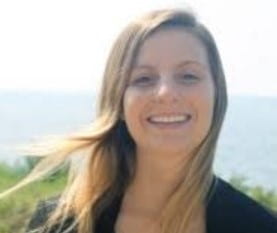U.S. Partners
Robert Orttung
Associate Research Professor of International Affairs; Assistant Director, Institute for European, Russian, and Eurasian Studies
Robert Orttung is president of the Resource Security Institute, Assistant Director of the Institute for European, Russian and Eurasian Studies at George Washington University’s Elliott School of International Affairs, and a visiting scholar at the Center for Security Studies at the Swiss Federal Institute of Technology (ETH) in Zurich. Orttung is a co-editor of the Russian Analytical Digest and the Caucasus Analytical Digest, bi-weekly electronic newsletters that examine political and economic developments in their respective regions. Previously he worked at the Jefferson Institute, American University’s Transnational Crime and Corruption Center, the EastWest Institute, and the Open Media Research Institute. He earned a PhD in Political Science from UCLA and a BA from Stanford University.
Marlene Laruelle
Research Professor of International Affairs at the George Washington University
Marlene Laruelle is a Research Professor at the Institute for European, Russian and Eurasian Studies (IERES), at George Washington University’s Elliott School of International Affairs. She is the Director of the Central Asia Program at IERES and co-director of PONARS (Program on New Approaches to Research and Security in Eurasia). She received her PhD from the National Institute of Oriental Languages and Cultures. She has authored Russia’s Strategies in the Arctic and the Future of the Far North (M.E. Sharpe, 2013), and edited New Mobilities and Social Changes in Russia’s Arctic Regions (Routledge, 2016). To read more about Marlene’s work, see her profile here on Arctic Data Center.
Timothy Heleniak
Director, American Geographical Society; Research Associate at the George Washington University
Timothy Heleniak is the director at the American Geographical Society. He is the Editor of the journal Polar Geography. He is a human geographer with regional expertise in Russia and other countries of the former Soviet Union and the Arctic. Dr. Timothy Heleniak was a Research Associate at the University of Maryland and has worked with the World Bank, the United Nations Children’s Fund, and the US Census Bureau. While at the World Bank, Heleniak was involved with the Northern Restructuring Project which is designed to assist the Russian government with out-migration and restructuring selected regions in Siberia. He received his PhD in Geography from the University of Maryland.
Nikolay Shiklomanov
Associate Professor of Geography and International Affairs at the George Washington University
Dr. Nikolay Shiklomanov is an Assistant Professor in the Department of Geography at the George Washington University. He earned a PhD in Climatology from the University of Delaware, a MS in Physics from St Petersburg University, and a MA in Geography from SUNY Albany. Dr. Nikolay Shiklomanov’s areas of expertise are in climate variability and change and the Arctic environment. He is currently working on a grant from the National Science Foundation for long-term observations on the climate-active layer-permafrost system.
Dmitry Streletskiy
Assistant Professor of Geography and International Affairs at the George Washington University
Dr. Dmitry (Dima) Streletsky is an Assistant Professor in the Geography Department. Dima’s research interests include cold region climates, impacts of climate change on permafrost and human-environment interactions in the Arctic. He is originally from Moscow, Russia where he completed his MS (2005) in Geography from the Moscow State University working on snow cover, glaciers, and permafrost. Streletskiy obtained his PhD (2010) in Climatology from the Department of Geography at the University of Delaware. Streletskiy is a coauthor of more than forty peer-reviewed publications, environmental assessments and reports, and a contributing author to the annual publications of state of the climate published by American Meteorological Society, NOAA and Roshydromet. He is a Chair of the Global Terrestrial Network for Permafrost, the terrestrial network operating under umbrella of the Global Climate Observing System (GCOS), WMO. He serves as a PI/Co-PI on several active NSF grants focusing on various aspects of Arctic regions in changing climatic conditions, from permafrost and hydrology, to Arctic urban sustainability.
Michael Mann
Assistant Professor of Geography at the George Washington University
Michael Mann is an Assistant Professor of Geography at the George Washington University. Professor Mann specializes in remote sensing and spatial modeling. He received his PhD in Geography from Boston University. At GWU, Professor Mann has taught classes on Environmental Hazards, Geographic Information Systems, and Programming for Geospatial Applications.
Prof. Mann’s Website: http://michaelmann.i234.me/wordpress/
Ryan Engstrom
Associate Professor of Geography at the George Washington University
An Associate Professor of Geography at the George Washington University, Professor Engstrom has conducted extensive research relating to Arctic Environments. Specializing in Remote Sensing techniques, Professor Engstrom has also served as a Consultant to the World Bank since 2015 and has previously worked as a Consultant for the United States Census Bureau. He received his BA in Geography from Villanova, his MA in Geography from San Diego State, and his PhD in Geography in a joint program with San Diego State and University of California at Santa Barbara.
Laura Engel
Assistant Professor of International Education and International Affairs at The George Washington University
Laura Engel is an Assistant Professor of International Education and International Affairs at the George Washington University, where she is also the Director of the International Education Program, co-Director of the certificate program Incorporating International Perspectives into Education, and co-Chair of the GW UNESCO Chair in International Education for Development. Her research explores globalization, citizenship, and education policy in federal systems, with a focus on (1) the impact of global education policy trends in national and sub-national contexts, and (2) the contribution of education to global citizenship. On Arctic PIRE, her work will examine how to enhance global learning opportunities through K-12 outreach on issues related to citizenship, migration, climate change, and urban sustainability. She received her PhD in Education Policy Studies from University of Illinois.
Lisa Benton-Short
Associate Professor of Geography and Sustainability at The George Washington University
Dr. Benton-Short is a urban geographer with an interest in the dynamics of the urban environment from many angles, including: urban sustainability, planning and public space, monuments and memorials, urban national parks, globalization, and immigration. Dr. Benton-Short has written extensively on the urban environment. She has authored several books, including: The Presidio: from Army Post to National Park (1998); Environmental Discourse and Practice (1999) and Environmental Discourse and Practice: a Reader (2000) , Cities and Nature (2007 and second edition in 2013) and Cities of North America: contemporary challenges in US and Canadian cities (editor, 2014). Her more recent book is The National Mall: No Ordinary Public Space published in 2016 with University of Toronto Press. She is currently working on book that examines how US cities are planning for sustainability. From 2010-2015, Dr. Benton-Short served as Academic Program Director for Sustainability at GW. She led the development of the pan-university sustainability minor for undergraduates. Since July 2015, she serves as Chair of the Department of Geography. She is also involved with in Geographic education, serving as member and currently Co Chair of the Advance Placement Human Geography Development Committee, through the College Board.
Melissa Keeley
Assistant Professor of Geography at The George Washington University
Melissa Keeley is an Assistant Professor of Geography at The George Washington University with expertise in urban sustainability, green infrastructure, stormwater management, and transnational policy adaptation.
Andrei N. Petrov
Associate Professor of Geography and Geospatial Technology at the University of Northern Iowa; Director of the GeoTREE Center at the University of Northern Iowa
Andrei N. Petrov is an Associate Professor of Geography and Geospatial Technology in the department of Geography at the University of Northern Iowa in Cedar Falls, IA. He is also the director of the Geoinformatics Training, Research Education, and Extension (GeoTREE) Center at UNI, the Arctic Social and Environmental Systems Research Lab (ARCSES), and the Program in Research and Outreach in Geography between Russia and the United States (PROGRUS). His research interests include Arctic social and socio-ecological systems, sustainability, and human development in remote communities.
Matthew Berman
Professor of Economics, Institute of Social and Economic Research at the University of Alaska Anchorage
Matthew Berman has been researching social science and public policy issues at the Institute of Social and Economic Research (ISER) since 1981. He first came to Alaska in 1978 as a Rockefeller Foundation post-doctoral fellow. Professor Berman’s primary areas of interests include economic organization and non-market valuation. Research interests include:
- Sustainable Communities: institutions and uncertainty, rural mixed economies
- Natural Resources: social-ecological systems, spatial ecosystem services, political economy and institutions
- Health and Safety: alcohol policy, aviation safety
At UAA Professor Berman teaches courses on economics and interdisciplinary social science courses including industrial organization and public policy, comparative economic systems, and petroleum economics. He has previously served as president of the Alaska Chapter of the International Association for Energy Economics.
Brent D. Ryan
Associate Professor of Urban Design and Public Policy at Massachusetts Institute of Technology
Brent D. Ryan is Associate Professor of Urban Design and Public Policy and Head of the City Design and Development Group. His work examines the aesthetics and practice of contemporary urban design, particularly in postindustrial cities and neighborhoods. He is author of two books: Plural Urbanism, which will be published by MIT Press in 2016, and Design After Decline: How America rebuilds shrinking cities, which was selected by Planetizen as one of its ten best urban planning books of 2012. Ryan has also published in a number of journals, including the Journal of Urban Design, Journal of Planning History, and the Journal of the American Planning Association, which awarded his article “Reading Through A Plan” its best article of 2011, as well as in several edited books, including The City After Abandonment and the Oxford Handbook of Urban Planning. Prior to joining MIT, Ryan taught at the Harvard Graduate School of Design and the University of Illinois at Chicago, where he was also Co-Director of the City Design Center. Ryan holds a B.S. in biology from Yale University, a M. Arch. from Columbia University, and a Ph.D. in urban design and planning from MIT.
Matthew Jull
Assistant Professor of Architecture at the University of Virginia
Matthew Jull is a founding partner of the design practices KUTONOTUK and TempAgency, and is an Assistant Professor of Architecture at UVA. His research focuses on systems and processes of architecture and urbanization in extreme environments, specifically in arctic Russia and North America. He is co-founder of the Arctic Design Group at UVA with Leena Cho, and his design work has won numerous awards such as those from the Helsinki Guggenheim Museum Competition (Honorable Mention – 2015), Helsinki Central Library Competition (Honorable Mention – 2013) and MoMA PS1’s Young Architects Program (Runner-Up – 2013), and has been featured in publications internationally, as well as being exhibited at MoMA New York, Bunkkeri Helsinki, Kunsthalle Helsinki, and the Danish Pavilion at the 2012 Venice Biennale. Jull received his MArch from Harvard University’s Graduate School of Design and his PhD in theoretical geophysics from Cambridge University. Prior to joining UVA, he was an architect and project leader at OMA/Rem Koolhaas in Rotterdam, The Netherlands, where he is currently a registered architect.
Leena Cho
University of Virigina
Leena Cho is co-principal of Kutonotuk, an award-winning research and design practice based in Rotterdam, NL and Charlottesville, VA. Her practice investigates spatial typologies that emerge from a broad array of interrelated forces – scientific, ecological, economic, political, cultural, and technological – that influence and shape the built and natural environment. Her current research focuses on the management of land-water dynamics, urban and landscape transformation of the Arctic, and pre-cinematic visual simulation techniques, and has been featured in major international publications such as Domus, Shinkenchiku, Topos, ELA and Conditions. Most recently, she was the winner of Europan 11 in Vienna – the prestigious competition for young designers for sites across Europe.
Jim Powell
Assistant Professor of Public Administration at the University of Alaska Southeast
Jim has spent most of his life in Alaska with over three decades working on environmental and natural resource policy and management, and local governance issues. His public service includes nine years on the City and Borough of Juneau Assembly with 3 years as Deputy Mayor. His dissertation research and current research interests are community and institutional adaptive capacity in response to climate change, sustainability, and local decision-making. He currently teaches natural resource policy, local sustainability, public administration, and local governance courses. Jim balances his teaching with serving on several state and local nonprofit boards. He also lectures and consults on sustainability planning. He is a member of the International Association for Society and Natural Resources, and Ecological Society of America.
International Partners
Oleg Anisimov
Professor of Physical Geography at the Hydrological Institute (Russia)
Professor Oleg Anisimov is Head of the Climatology Department at the State Hydrological Institute of Russia, located in St. Petersburg. His research focuses on the impacts of climate change in high latitudes, especially in regions of Arctic permafrost.
Alexander Pelyasov
Director, Center of Northern and Arctic Economies, Russia
Alexander Pelyasov is the director for the Center for the North and Arctic economy, Council for the Study of Productive Forces, and Ministry of Economic Development of the Russian Federation and Russian Academy of Sciences.
Nadezhda Zamyatina
Professor of Human Geography at Moscow State University
Nadezhda Zamyatina is a leading researcher in the Faculty of Geography at Moscow State University. She is also the deputy director of the Center for Economics for the North. A graduate of Moscow State University she is an expert in the field of human geography. She has authored over 100 scientific papers on the phenomenon of the frontier, interregional migration, the image and branding territories, institutional and cultural factors of local development, and the spatial structure of regional socio-economic systems in the North and the Arctic. She also regularly lectures on the socio-economic development of the Arctic regions, socio-economic geography of Canada, and in topical areas of modern social geography, population geography, cultural geography, cognitive geography, marketing and branding areas.
As an expert Nadezhda also regularly participates in the development of strategic planning documents of socio-economic development on the municipal and regional level (including policies and programs of socio-economic development of the Khanty-Mansiysk Autonomous Okrug – Yugra, the Altai Territory, Khanty-Mansiysk, Noyabrsk, Gubkinsky, Muravlenko, etc.). Her applied research focuses on the spatial development for the Russia’s Ministry of Economic Development, Russian Industry and Trade Ministry, the WWF, and others.
Larisa Ryabova
Kola Science Center, Russian Academy of Sciences
Larisa Ryabova is a Senior Researcher in the Department of Social Policy in the North at the Kola Science Center, Russian Academy of Sciences. Her research interests include social policy, living standards, socio-economic transformations, and social capital. In 1989 she was awarded a PhD degree with a thesis entitled: “Planning of social infrastructure development in the Far North”. She has been employed at the IEP KSC since 1982.
Alexander Sergunin
Professor of International Affairs at St. Petersburg State University
Alexander Sergunin is Professor of International Relations, St. Petersburg State University, Russia. He received his PhD (history) from the Moscow State University and habilitation (political science) from the St. Petersburg State University. His fields of research and teaching include International Relations Theory, Russian foreign policy thinking and making, Arctic politics. His most recent book-length publications include: Explaining Russian Foreign Policy Behavior: Theory and Practice (Stuttgart, 2016); Russia in the Arctic. Hard or Soft Power? (Stuttgart, 2016) (with Valery Konyshev); U.S. Ballistic Missile Defense System: Past, Present, Future (St. Petersburg, 2015) (with Valery Konyshev and Valeria Shatzkaya); Russian Strategies in the Arctic: Avoiding a New Cold War (Moscow, 2014) (with Lassi Heininen and Gleb Yarovoy); Contemporary Military Strategy (Moscow, 2014) (with Valery Konyshev);
Aileen A. Espíritu
Director of the Barents Institute
Dr. Aileen A. Espíritu has ongoing research on sustainable development in the Arctic regions, notably its urban areas; region-building in the Arctic and the Barents Region; identity politics in indigenous and non-indigenous Northern communities; the impact of industrialization and post-industrialization on mono-industry towns in the High North; and the politics of community sustainability in Russia in comparative perspective. She is the Principal Investigator for the Norwegian Research Council-funded project ARCSUS: Arctic Urban Sustainability in Russia (2012-2015) examining the social, economic, political, and cultural sustainability in Arctic cities. ARCSUS is an international project with consortia partners from six countries. This project continues from 2015-2018 with funding from the Norwegian Research Council Polar Programme and NordForsk under the Belmont Forum. Espíritu is also a main partner in the Norwegian Research Council research project Future North that focuses on the knowledge production on new landscape typologies, include the everyday in the category of landscape, and explore tools to articulate and narrate such perspectives. Her main analysis for the project is the impact of the international political economy, including extractive industries, on communities in the Arctic. Espíritu was also the Norwegian lead in the EU-FP7 project EUBORDERREGIONS analyzing the geopolitics of borders in the outer edges of the Schengen. She is a co-editor in the international refereed journal Barents Studies.
Elana Wilson Rowe
Norwegian Institute of International Affairs (NUPI)
Elana Wilson Rowe is a Senior Research Fellow at the Norwegian Institute of International Affairs and Adjunct Professor at the University of Nordland, Norway. She is the editor of Russia and the North (2009) and co-editor of The Multilateral Dimension in Russian Foreign Policy (2009, with Stina Torjesen). She is researching factors shaping Russian climate change policy and the connection between international assessment processes and Russian domestic decision-making. She received her PhD in Human Geography from the University of Cambridge.
Greg Poelzer
Political Studies, University of Saskatchewan
Greg Poelzer is a Professor in the School of Environment and Sustainability (University of Saskatchewan) and Founding Director of the International Centre for Northern Governance and Development. He is Lead of the Fulbright Arctic Initiative, Energy Group scholar (May 2015 to October 2016) and leads the UArctic Northern Governance Thematic Network. His first book (co-authored), Arctic Front: Defending Canada in the Far North (2008), was awarded the 2009 Donner Prize for excellence and innovation in Canadian public policy writing. His second book (co-authored), From Treaty Peoples to Treaty Nation: A Road Map for All Canadians was shortlisted for the 2016 Donner Prize, Dafoe Prize, J.W. Dafoe Prize, and Saskatchewan Book Award. He has served as an advisor and negotiator on Indigenous relations for the Government of Saskatchewan, the Federation of Saskatchewan Indian Nations, and SaskPower. Greg’s current research focuses on renewable energy, resource economies, and sustainable development in sub-Arctic regions.
Veli-Pekka Tynkkynen
Russian Energy Policy, University of Helsinki
Veli-Pekka Tynkkynen is Professor in Russian energy policy at Aleksanteri Institute University of Helsinki. In addition he is an Adjunct Professor in Environmental planning at the Department of Geosciences and Geography, University of Helsinki. His research fields are energy and environmental policies; energy security; energy, societal power and culture in Russia. He leads several academic research projects that focus on Russian energy and environmental policies in the Arctic.
Joonseo Song
Institute of Russian Studies, Hankuk University of Foreign Studies
Joonseo Song is an Assistant Professor in the Institute of Russian Studies(IRS) at Hankuk University of Foreign Studies (HUFS), located in Seoul, South Korea. His research focuses on local authorities and elites’ efforts to build new post-Soviet identities in Russian regions, especially borderland regions, including Cheliabinsk, Smolensk, and Pskov oblasts. He is the author of The Pskov Oblast’: From A Fortress in the Periphery to A Transit Hub of Northwest Russia (Seoul, 2012) and of numerous peer-reviewed journal articles, including “Rebuilding Local Identities in a Post-Soviet Borderland: Troitsk and the Memory of the Silk Road” (2015) and “Re-defining the Regional Identities of the Monogorod in the Urals during the Post-Soviet Era” (2010). He is also the managing editor of REGION: Regional Studies of Russia, Eastern Europe, and Central Asia, a Scopus indexed journal published by Slavica.
Marya Rozanova
Professor of Political Science at the Russian State Hydrometeorological University; Chair of the Center for Civil, Social, Scientific, and Cultural Initiatives “STRATEGIA”
Marya Rozanova is a Professor of Political Science, and a Representative in North America, for the Russian State Hydrometeorological University (St. Petersburg, Russia). She previously headed the Center for Preservation and Development of Indigenous Peoples’ Cultures in Russia at State Polar Academy (2014-2015) and the Center for Intercultural Dialogue and Socio-Cultural Integration at Admiral Makarov State Maritime Academy (2012-2013). Since 2007, she has chaired the Center for Civil, Social, Scientific, and Cultural Initiatives “STRATEGIA,” which specializes in issues related to migration processes in contemporary Russia. Her latest research in the Arctic was implemented in Sakha (Yakutia) Republic in Russia (2015). This work included the research on local ‘communities–in–transition,’ growing indigenous identity crisis, and its consequences. Other spheres of research and consultancy expertise includes: (1) Russian policy and the Arctic region, and (2) migration policy and immigrant integration. Dr. Rozanova holds a Ph.D. in Philosophy from St. Petersburg State University. Publications available at: https://spbu.academia.edu/MaryaRozanova
Ksenia Mokrushina
Head of the SKOLKOVO Center for Urban Studies (SUrbC)
Ksenia received her Master of City Planning from the Massachusetts Institute of Technology in 2012, and has since been researching at the SKOLKOVO Center for Urban Studies in Moscow. Since 2007, Ksenia has been engaged in project and research activities in the field of sustainable urban development, environmental and energy planning, energy efficiency, mega-events planning and urban governance. Her work experience includes projects for leading international organizations such as the World Bank, ICLEI-Local Governments for Sustainability and UN-Habitat.
Vera Kuklina
Research Professor of Geography at the George Washington University, Senior Researcher at the Sochava Institute of Geography, Siberian Branch of Russian Academy of Sciences.
Larissa Riabova
Head of Department, Luzin Institute for Economic Studies of the Kola Science Centre of the Russian Academy of Sciences, Russia
Stephanie Hitztaler
Post-Doctoral Researcher at the University of Helsinki.
Stephanie works as a Post-Doc Researcher at the Aleksanteri Institute at the University of Helsinki. Her current research focuses on Corporate Social Responsibility programs of fossil fuel companies that are actively developing in the Russian Arctic.
Graduate Research Fellow, Arctic Design Group, University of Virginia
Benjamin is a third-year graduate student in Architecture at the Harvard University Graduate School of Design and is currently serving as a Research Fellow with the Arctic Design Group at the University of Virginia. His research focuses primarily on the intersections of building technology, architecture, urbanism, and contemporary life in the built environment. Prior to joining Arctic Design Group, he was a designer at Bjarke Ingels Group (NY) and Skidmore, Owings & Merrill (D.C.).
Research Assistants
Emily Zhang
Graduate Research Assistant, Geography, Columbian College of Arts & Sciences
Emily is a Masters student in Geography. She recently graduated with a B.A. in International Affairs and Geography from GW, where she was also a member of the Varsity Swim and Dive team. Before joining the PIRE team, she was at the U.S. Green Building Council working on the non-profit’s green schools programs. She is interested in the interactions between environmental sustainability and urban geography.
Graduate Research Assistant, European and Eurasian Studies, Elliott School of International Affairs
Leah is a first-year graduate student at GW. She plans to specialize in International Security Policy during her studies here. She received her bachelor’s degree in Middle Eastern History from the University of Maryland, College Park. She also minored in Russian Studies and in the university’s START’s Terrorism Minor program. She is fluent in Russian and is very interested in Eurasian terrorism and insurgency groups.
Graduate Research Assistant, Geography, Columbian College of Arts & Sciences
Sonia is a first year graduate student at GW pursuing a Masters in Geography. She is a recent graduate from Furman University in Greenville, SC, where she received her B.S. in Earth and Environmental Science. Throughout her undergraduate career she worked as a research assistant studying vineyard soil chemistry, environmental department assistant, and as a student sustainability fellow. She is interested in physical geography and the connections between current rapid environmental changes in the Arctic and their impacts on affected communities.
Undergraduate Research Assistant, International Affairs and Geography, GWU
Melissa is a rising senior at George Washington University. She is completing a double major in International Affairs and Geography. Her research interests include urban sustainability and more specifically, understanding how cities can adapt to the challlenges related to globalization and climate change. She began working with PIRE after she took an Arctic-related class and loved the content she learned. Melissa finds the Arctic to be a fascinating region, where climate, people, and the natural environment intersect in unique ways. She looks forward to uncovering more of the story that the Arctic is trying to tell us.
Research Assistant, Master of Public Administration at Eastern Michigan University
Andrea received her BS in International Affairs at Eastern Michigan University in 2018. She is currently working towards her Master of Public Administration degree at EMU. Her arctic research interests include public and affordable housing and she is working on PIRE to help with journal Demokratizatsiya. In 2019, she studied at a language school in Latvia where she obtained the B1 certification in Russian. In the past, she’s also interned at the Ministry of Foreign Affairs of the Czech Republic where she gained experience in the Department of the Middle East and Northern Africa.
Graduate Research Assistant, Environmental Resource Policy, Trachtenberg School of Public Policy & Public Administration
Kelsey is a graduate student studying Environmental Resource Policy at George Washington University. She graduated with her B.A. in Political Science with minors in Anthropology and Sustainability from the University of Florida in 2016. Her research with the PIRE team focuses on renewable energy use and potential in Arctic cities.
Undergraduate Research Assistant, International Affairs, Elliott School of International Affairs
Zoe is a senior at GW studying International Affairs with a concentration in Conflict Resolution and a minor in Sustainability, with primary interests in disaster and risk reduction as well as emergency management. She conducts research on fire management practices and agencies in Sweden as part of GW’s contribution to ACRoBEAR (Arctic Community Resilience to Boreal Environmental change: Assessing Risks from fire and disease), where she contributes her previous research experience along with her Swedish language skills.
Undergraduate Research Assistant, International Affairs, Elliott School of International Affairs
Sarah is an undergraduate student at George Washington University majoring in International Affairs with a concentration in International Environmental Studies. She is interested in international sustainability efforts and sustainable tourism. In the past, she has worked as an intern in the US House of Representatives. Now, she is excited to be working as a research assistant for PIRE researching Arctic tourism.
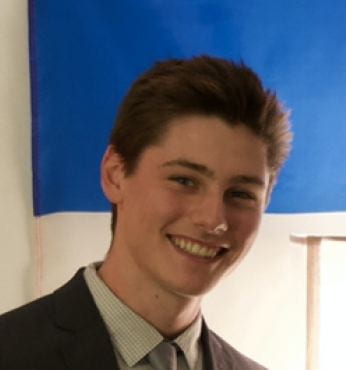
Undergraduate Research Assistant, Business Analytics, George Washington School of Business
Daniel is a Junior in the George Washington University School of Business studying Business Analytics with a minor in Sustainability. He hopes to merge these two interests in order to reduce carbon emissions, specifically in business operations, as well as to mitigate climate change. He looks forward to creating valuable and accessible visuals for those living in the Arctic.
Shreeya Sharda
Undergraduate Research Assistant, International Affairs, George Washington University
Shreeya is a first year at the Elliott School of International Affairs, majoring in IA and Computer Science. She is originally from Long Island, New York. Here interests are varying and ever expanding, but she hopes to work at the intersection of health, international relations, business, and technology. She is currently working with the PIRE team to build a website that will make the project database publicly accessible, and can hopefully help policymakers develop actionable solutions that will improve the Arctic’s environmental, economic, and social landscapes.
Alumni
Katherine Weingartner
Luis Suter
Graduate Research Assistant – Geography and Geographic Information Systems, Columbian College Department of Geography
Luis Suter is an M.S. candidate studying Geography and Geographic Information Systems (GIS). He received a B.A. in International Affairs and a B.A in Geography at GW, where he began working on a Research Coordination Network grant on Arctic Urban Sustainability. Following his graduation Luis remained in Washington DC receiving his Graduate Certification in GIS from GW in 2016 and working for several organizations, including the World Bank.
Carrie Schaffner
Graduate Research Assistant – International Development Studies, Elliott School of International Affairs
Carrie Schaffner is an M.A. candidate concentrating on sustainable community development. Prior to beginning her master’s program, Carrie worked for the United States Antarctic Program coordinating remote field logistics, and providing field support to science teams in remote locations across the continent. In her off-seasons, Carrie worked with Red Feather Development Group to create affordable, energy-efficient housing on the Northern Cheyenne and Pine Ridge Reservations. Carrie holds a BA from Colorado College and a Certificate in Renewable Energy Technology.
Carlson Giddings
Undergraduate Research Assistant – Elliott School of International Affairs
Carlson is a B.A. candidate concentrating in International Development and minoring in Sustainability. She became involved with the Arctic PIRE project during the Fall of her senior year given her interest and research experience with urban sustainability. Last semester, while studying abroad in Vietnam, she completed a short-term internship with HealthBridge, a Canadian NGO in Hanoi and completed a qualitative research project, titled “Traditional Fresh Markets and the Supermarket Revolution: A Case Study on Chao Long Market,” that has since been published. In DC, Carlson has previously interned for Green America.
Claire Casstevens
Research Associate
Claire Casstevens is a recent graduate of the Master of Landscape Architecture program at the University of Virginia, where she was a recipient of the School of Architecture’s William R. Kenan Fellowship. She has several ongoing lines of inquiry within the realm of landscape studies and has most recently become interested in the relationship of designed landscapes to modern dance and kinesiology. Prior to graduate school, Claire completed internships at institutions including the University of Pennsylvania, Smithsonian and Metropolitan Museum of Art, and then worked as a preschool paraprofessional in Washington, DC. She received her BA in Anthropology and Art History from Vassar College.
Claire Franco
Undergraduate Research Assistant – Security Policy, Elliott School of International Affairs / Geography, Columbian College of Arts & Sciences
Claire Franco is a third year at GWU, where she is pursuing a double major and studying Russian language. In July 2017, she accompanied a multidisciplinary team of PIRE partners and students from GWU, Moscow State University, and several European universities in a practical research project in the Russian Arctic cities of Labytnangi, Salekhard, and Vorkuta.
Program Assistant – Educational Outreach & Research for the #60above60 Project
Gary Colletti is a recent graduate from The George Washington University’s Graduate School of Education and Human Development’s Master’s program in Education Policy. Prior to that, he was a public school teacher and curriculum developer in New York City and Virginia. His academic interests lie in innovative design of structures and systems to support pioneering classroom projects. He has found that examining diverse areas as environmental studies, sociology, philosophy, as well as natural, cognitive, and political sciences – among other fields- can intersect in effective student and teacher projects.
Graduate Research Assistant, Graduate School of Education and Human Development, Department of Curriculum and Pedagogy
Mary E. Short is an educator and educational researcher whose experience includes both curriculum design and instructional research. She holds a MS in Ecological Teaching and Learning from Lesley University and is pursuing her second year of doctoral studies in Curriculum and Instruction. Currently, her work focuses on assisting teachers in developing interdisciplinary STEM experiences for their classrooms. Her research focuses on understanding student’s perceptions of locally and globally relevant science and environmental education. Previously, she served as Associate Director for Nature’s Classroom Inc., the largest residential environmental education program in North America. Additionally, she taught fourth through sixth grades at a private elementary school in Massachusetts before moving to the DC area to pursue her doctoral studies.
Sarah Jennings
Graduate Research Assistant – Educational Outreach
Sarah Jennings supervises VISTAs involved with the GWU/DCPS partnership. She is a MA candidate for International Education at GWU, specializing in global education in K-12 schools. After graduating in 2012, she moved to DC to join City Year, an AmeriCorps program, where she served at Garfield Elementary School for two years. Sarah’s passion is working with underserved communities and schools to provide tools they need to be global citizens with equal opportunities.
Kathryn Urban
Program Specialist – Bridging the Gap
Kathryn serves as the Program Specialist at Bridging the Gap, working to connect academics and policy-makers in the international security space. She has an extensive professional background in foreign policy and national security issues, having previously worked on NATO relations at the Department of Homeland Security and completed a fellowship on U.S.-China engagement at Crowell & Moring International. Additionally, she has been involved with academic research projects based at George Washington University. She spent six months in East Africa conducting independent research on China’s Belt and Road Initiative and traveled to Alaska with Arctic PIRE to conduct fieldwork on Arctic sustainability. Kathryn graduated George Washington University summa cum laude in December 2017 with a BA in International Affairs and is currently a Master’s candidate at the American University School of International Service. She is a founding board member of Leading Women of Tomorrow and a staff writer for Charged Affairs.
Undergraduate Research Assistant, Environmental Studies, Columbian College of Arts & Sciences
Phoebe is a recent graduate of GW where she majored in Environmental Studies and minored in Spanish. She is interested in urban sustainability and resiliency planning. Now, she is working at Nexamp, an organization focusing on building capacity for solar energy, as an Account Specialist.
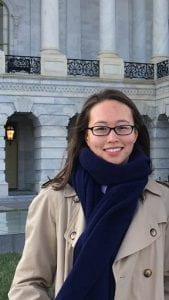
Charlene Burns
Research Assistant, International Affairs, Elliott School of International Affairs
Charlene is a senior at GW studying International Affairs concentrating in International Politics and minoring in Business Administration. She has worked on the Media Peace Project at the School of Media and Public Affairs and with PIRE, she is researching solid waste management in the Far North.
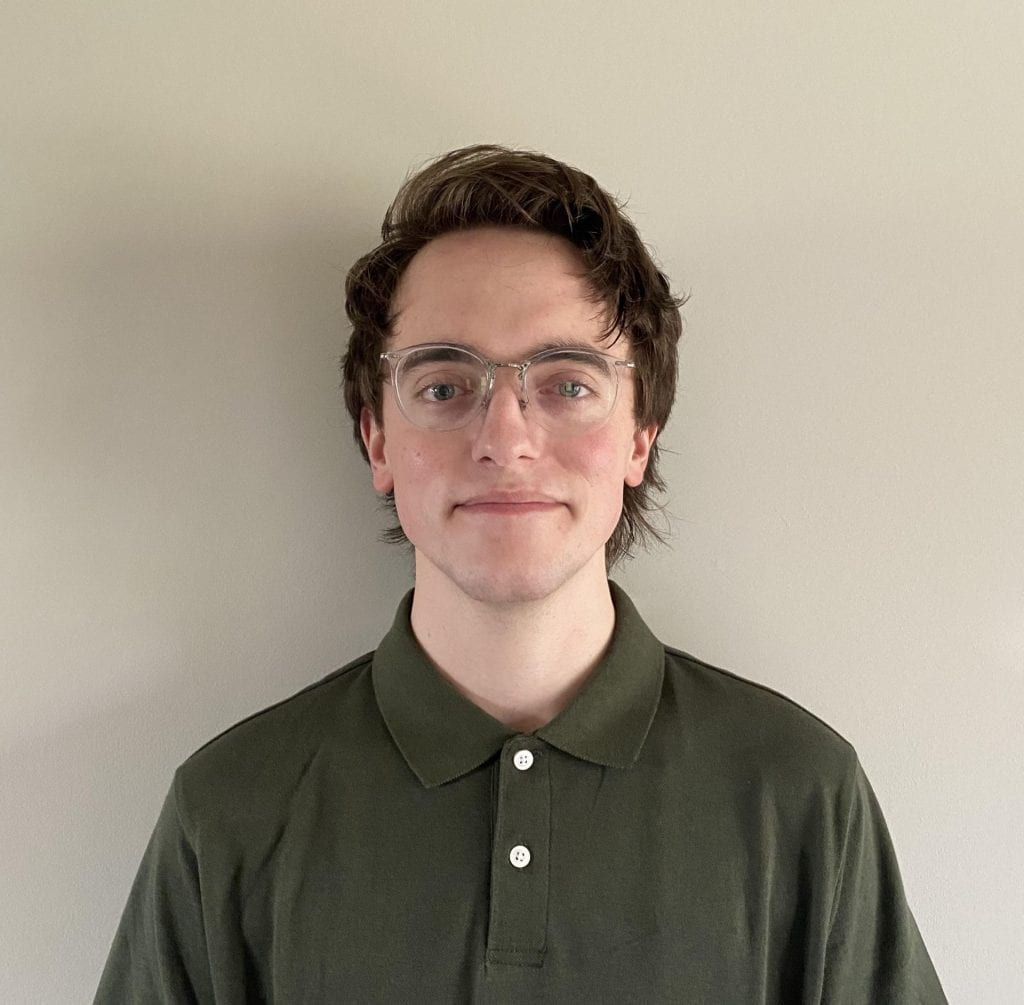
Jacob Graham
Research Assistant, International Affairs, Elliott School of International Affairs
Jacob works as a Homeland Security and Policy Planner at the Metropolitan Washington Council of Governments (MWCOG) where he supports regional homeland security and public safety efforts. He is currently partnering with Charlene Burns to research the perceptions of wildfire management in Fairbanks, Alaska and Los Angeles, California. In 2020, Jacob received his MSc in International Disaster Management from the University of Manchester where his dissertation focused on the “governmentality” of resilience in Fairbanks. He graduated from GW in 2019 with his BA in International Affairs. During his time at GW, Jacob was a member of the Arctic PIRE research team and participated in the group’s 2019 field trip to Alaska and Canada.


